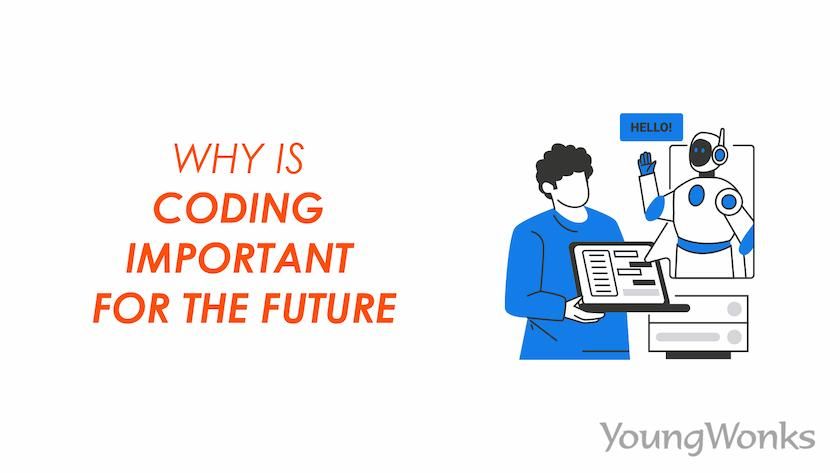Nov 04, 2024 By Team EdOptim *
The Importance of Girls in Coding
Gender diversity in tech leads to stronger problem-solving, greater creativity, and a broader range of ideas. However, many young girls still lack the opportunity or encouragement to pursue careers in computer science. The challenge is particularly pressing in high school, when students start making important decisions about their future careers.
Research shows that many girls lose interest in STEM fields by the time they reach high school, often due to stereotypes, a lack of resources, or simply not seeing enough role models in the industry. By tackling these barriers, we can encourage the next generation of women coders to take their first steps into the world of technology.
This is where Girls Who Code, a non-profit organization, shines. Their mission is to bridge the gender gap in tech by making coding accessible to young women from all backgrounds. Whether a student is part of a girls who code club at school, or attending their immersive summer program, the opportunities are designed to ensure girls gain exposure to coding, leadership skills, and mentorship that can last a lifetime.
Girls Who Code: Shaping the Future
Founded in 2012, Girls Who Code has become a global movement aimed at closing the gender gap in technology. Their programs focus on providing girls with hands-on experience in programming, fostering an environment of collaboration, and encouraging critical problem-solving skills. What started as a small initiative has since grown into a massive organization, with thousands of high school girls and middle school students benefiting from their resources.
One of their most impactful initiatives is the Girls Who Code Summer Immersion Program, a seven-week course that introduces high school girls to coding concepts in a real-world context. Participants are taught to code in languages like Python, JavaScript, and HTML while working on exciting projects in fields such as app development and robotics. The program also exposes students to successful women in tech, often hosting field trips to major companies like LinkedIn and New York-based tech startups.
Access and Accessibility in Coding Education
An essential part of the Girls Who Code mission is ensuring that coding is accessible to all girls, regardless of their background or financial situation. Many schools, particularly those in underserved communities, lack comprehensive STEM education, leaving young girls without the tools to explore careers in technology. This is why Girls Who Code offers free coding programs in schools and local community centers.
Additionally, the Girls Who Code Summer Immersion Program offers scholarships to make sure no girl is excluded from learning to code due to financial barriers. By breaking down these obstacles, Girls Who Code ensures that the future of technology is shaped by a diverse and inclusive group of coders.
Mentorship and Community Building
Building a strong community is essential for girls entering the tech industry. The Girls Who Code movement is not just about learning to code; it’s about building confidence, fostering leadership, and helping girls see themselves as part of a larger network of innovators. Many girls who code clubs offer opportunities for mentorship, pairing young students with professionals from the tech industry.
These mentorship relationships are invaluable, especially in an industry where female coders are still in the minority. Connecting girls with role models helps them build the confidence they need to thrive. It also provides real-world insights into the types of challenges and opportunities they’ll face as they progress in their careers.
For many girls, their first exposure to coding comes through programs like Girls Who Code. Whether it’s their first time writing a line of code in Python, creating a website, or working on a robotics project, these experiences leave a lasting impact. Being part of girls-focused initiatives helps them feel empowered to continue exploring tech.
Girls Who Code Clubs: A Supportive Space for Growth
One of the key ways Girls Who Code promotes learning is through after-school coding clubs, which serve as accessible and supportive spaces where girls can practice their coding skills while collaborating on exciting projects. These clubs are not only a place to develop technical skills but also a way to foster essential soft skills like teamwork, communication, and problem-solving.
These girls who code clubs can be found across schools, libraries, and community centers nationwide. Many participants start in middle school or high school and grow through the program as they move on to college or enter the workforce. With initiatives like these, girls who might never have considered coding begin to view themselves as future software engineers, app developers, or data scientists.
Girls Who Code and the Tech Industry: Creating Pathways to Success
As more women enter the tech workforce, there are growing efforts within the tech industry to support these women. Companies like Microsoft, Google, and LinkedIn have partnered with Girls Who Code to offer internships, career development workshops, and site visits to help girls see what it’s like to work in technology. These real-world experiences are crucial in helping high school girls understand the wide range of opportunities available to them.
These corporate partnerships are also contributing to a broader movement toward more inclusive hiring practices, fostering a culture where female programmers are not just welcomed but celebrated for their contributions.
The Future: Inspiring the Next Generation of Coders
The future of technology is bright, and female coders will play a crucial role in shaping it. By empowering young girls to pursue their interest in computer science and programming, we’re setting the stage for a more diverse and innovative workforce. Organizations like Girls Who Code are central to this mission, creating a sustainable pipeline of talent that is not only skilled but also driven by a passion for making the world a better place through technology.
Conclusion: A World of Opportunity
Coding education for girls is more than just teaching them how to write code—it’s about giving them the tools to shape the future. Programs like Girls Who Code are not only closing the gender gap in the tech industry but are also inspiring a whole new generation of leaders and innovators.
Through accessibility, mentorship, and real-world experience, these initiatives ensure that young girls from all walks of life have the opportunity to succeed in technology. Whether they’re part of a girls who code club or attending a seven-week summer immersion program, the impact is undeniable. The next generation of coders will be more diverse, more inclusive, and more prepared to solve the world’s biggest problems through technology.
By continuing to support programs like Girls Who Code and investing in the future of girls in tech, we’re not just building a better tech industry—we’re building a better world for everyone.
With the growing success of Girls Who Code, it’s clear that the future of technology belongs to all of us. This non-profit organization is ensuring that the next generation of coders will not only break down barriers but also shape the future of innovation. From New York to Silicon Valley, girls are learning to code, lead, and inspire others to follow in their footsteps.
*Contributors: Written by Reuben Johns; Edited by Alisha Ahmed; Lead image by Shivendra Singh

